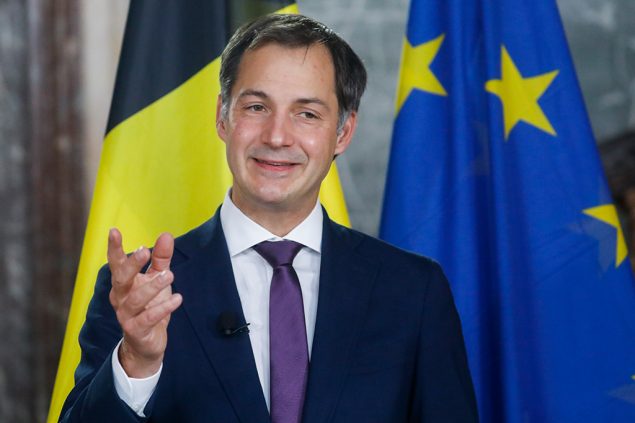BRUSSELS, (Reuters) – European Union leaders today adopted tough new sanctions on Russia, hitting its economy and elites in response to President Vladimir Putin’s “barbaric” invasion of Ukraine.
Russian forces rained missiles on Ukraine through the day in the biggest attack by one state against another in Europe since World War Two.
Leaders of the 27-nation bloc lambasted Putin, one by one, as they arrived for an emergency summit in Brussels, with Latvian Prime Minister Krisjanis Karins describing him as “a deluded autocrat creating misery for millions”.
The EU will freeze Russian assets in the bloc, halting banks’ access to European financial markets as part of what its foreign policy chief, Josep Borrell, described as “the harshest package of sanctions we have ever implemented.”
It will also target Russia’s trade, energy and transport, among other sectors, and impose export controls.
“Our sanctions will hurt the Russian economy in its heart,” said Belgian Prime Minister Alexander De Croo.
But a sense of powerlessness to stop a war that Western leaders had seen coming could be felt even before the summit began.
“We were not successful enough, not decisive enough, to prevent Russia from this step, which is a tragedy for Ukraine, a tragedy for Europe and a tragedy for Russia itself,” said Lithuanian President Gitanas Nauseda.
“I believe still in the potential … of the EU in preventing such actions in the middle of Europe. For this we need to take action (now),” he said as he went into the evening summit. “Tomorrow might be too late.”
There are differences within the EU over how far to go with sanctions, with countries that would face the harshest economic backlash keen to keep the most severe steps in reserve.
The details of the sanctions – including whether anything had been agreed on the SWIFT global interbank payments system – were not immediately known.
Ukraine and the EU’s ex-Soviet Baltic states say Russia should be cut off from the system, but German Chancellor Olaf Scholz, when asked about SWIFT, said: “We need to keep sanctions ready for later times.”
U.S. President Joe Biden also said the United States would not restrict access to SWIFT for now.
In a statement agreed at the summit, EU leaders said the new round of sanctions “will impose massive and severe consequences on Russia for its action, in close coordination with our partners and allies”.
Russian assets in the EU would be frozen and Russian banks’ access to Europe’s financial markets would be stopped.
An EU diplomat said Italy, Germany and Cyprus had been among those that preferred a step-by-step approach, while Central European and Baltic states – those closest to Russia – wanted a harder stance.
“We support the most serious package of sanctions against Russia,” Slovenian Prime Minister Janez Jansa said, wearing a tie with the Ukrainian flag’s yellow and blue colours. “Russia needs to feel that the price of aggression is significant.”
The EU had already approved a first round of sanctions on Wednesday, including blacklisting Russian politicians and curbing trade between the EU and two breakaway regions of eastern Ukraine whose independence Moscow has recognised.
The EU will also prepare a new aid package for Ukraine and new sanctions against Belarus. Ukraine’s border guard service said Russian troops had used Belarus as one of their entry points to Ukraine,and received Belarusian support.










